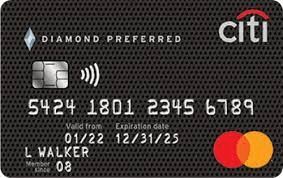Shopper
Shopper
Management
Ways of doing this include looking for sales, comparison shopping, and considering alternatives.
What is "save money/get a better deal?"
When budgeting, this is the amount of money that you make or receive in a period of time.
What is "income?"
Reasons to use these include: they keep money safe, they give you easy access to your money, and your money is federally insured.
What are "bank accounts?"
A company's charge to borrowers for the privilege to use the company's money.
What is "interest?"
What is "to make more money?"
These goals are things that you want or need to do today, tomorrow, or in the next week.
What are "short-term goals?"
A written account of what you earn, spend, and save.
What is a "budget?"
The act of buying something you didn't plan to buy, possibly to make yourself feel better because you are hungry, sad, jealous, etc.
What is "impulse buying/shopping?"
When budgeting, this is the amount of money you spend in a given period of time.
What is "expense?"
The type of bank account that usually earns a small amount of interest.
What is a "savings account?"
In order to get one of these, you need good credit history, proof of income/employment, good references, and pay history.
What is "a loan?"
Investing in this is one of the smartest things you can do.
What is "yourself - education, new trades, skills?"
These goals are things you want to accomplish over the next several weeks, months, or years.
What are "long-term goals?"
The idea of managing critical parts of your life including your money, your time, and your future, while developing self-discipline and persistence.
What is "personal management?"
Something you might see or hear that describes a product, its features and benefits, where to buy it, and possibly the cost.
What is an "advertisement?"
The wise thing to do with any money left over at the end of a month.
What is "save it?"
The type of bank account that allows you to write checks or use a debit card to make purchases using the money in the account.
What is a "checking account?"
The definition of this word is "the rise in cost of goods over time."
What is "inflation?"
Types of these include savings bonds, certificates of deposits, stocks, mutual funds, and collectibles.
What are "investments?"
Because we do not have the time to do everything we need or want to do, it is important to set these.
What are "priorities?"
This point of the scout law is most related to the personal management merit badge.
What is "a scout is thrifty?"
An advertising technique where a particular item is promoted at a low price, but when you try to buy it, the salesperson tries to sell you something "better" at a higher price.
What is "bait-and-switch?"
This is the amount of your earnings that are left after taxes and other items are deducted by your employer.
What is "take-home/net pay?"
This is an example of what?

What is "a credit card?"
With this type of interest, if you have $100 in your account and receive 10% interest annually, you would have $110 at the end of the first year. If you left your $100 in the bank for 2 years, you would have $120 at the end of 2 years.
What is "simple interest?"
This type of investment actually gives you some ownership in that company's assets and earnings based on how many shares of that company you own. The company uses the money raised by selling these to operate their business.
What is a "stock?"
The term for putting off tasks, especially when they are large or unpleasant or the deadline is a long time away.
What is "procrastinating?"
This type of insurance is for a payment of a certain amount to your family or other designated person, should you die.
What is "life insurance?"
Ways to do this include: part-time work, allowance for chores, sell used items, or sell labor.
What is "make/save money?"
These are the two types of expenses that are involved in a budget.
What are "fixed and flexible/discretionary expenses?"
This type of banking allows you to access your bank account by debit card, phone, and computer with no paper or people involved, but may be dangerous if you don't keep up with what you are spending.
What is "electronic banking?"
With this type of interest, if you start with $100 and you get 10% interest, the first year you would get interest of $10 and would have $110. The second year you would get interest of 10% of the $110, so now you would have interest of $11 added to your balance for a total of $121.
What is "compound interest?"
This term describes the profit you make from investments or the increase in the value of the investment.
What is "return on investment (ROI)?"
These should be re-evaluated from time to time as they might change as time passes.
What are "goals?"
This score is a rating of your creditworthiness and can determine whether you get a loan or even a job. It is based on your history of paying your bills and how much debt you are in versus how much money you make.
What is "your credit score?"